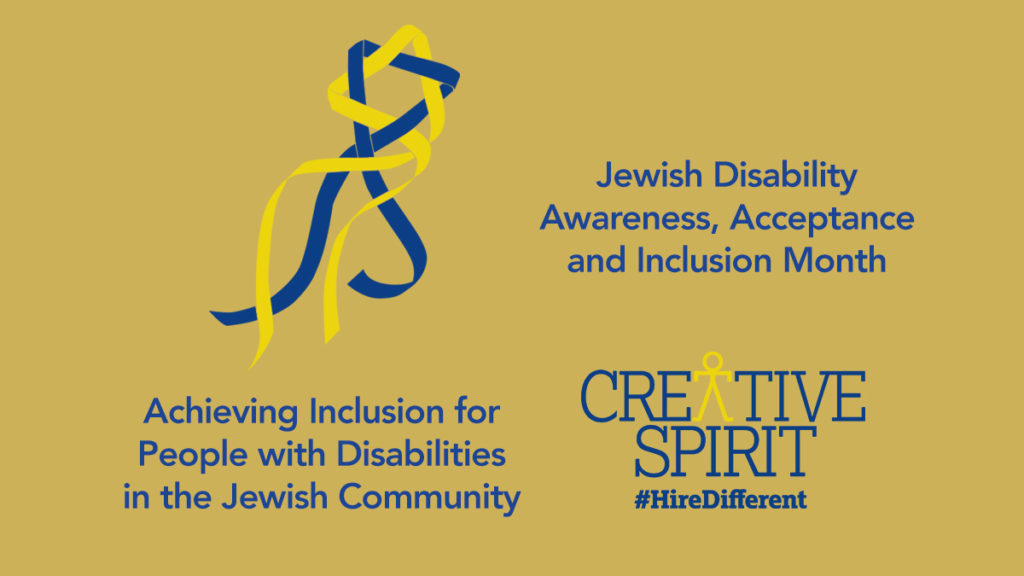By Menachem Rephun, Communications Manager and Self Advocate

Since our founding in 2017, Creative Spirit’s mission has been ensuring full inclusion for Americans of all ethnicities, orientations, and cultural and religious backgrounds with disabilities. Inclusion is even more important for those who already belong to other minority groups, making representation an even bigger priority. The Jewish community with disabilities is the perfect example of a “minority within a minority”, as Jews comprise a mere 1.9% of the U.S. population, and within that percentage, 15-20% of Jews live with disabilities, based on 2015 U.S. Census Bureau data. Jewish Disability Awareness, Acceptance, and Inclusion Month (JDAAIM) is a time to reflect on Jewish disability rights and the state of inclusion for people with disabilities within the American Jewish community, and what can be done to make a difference.
Reports on disability inclusion within the Jewish community have been encouraging in some respects, while suggesting a need for improvement in others. A 2013 poll of 2,607 Jews by RespectAbilityUSA.org, for example, found that among the respondents, Jews with disabilities were surprisingly underrepresented, with the sample having less than half the disability rate in the U.S. Census. Megan Buren, a RespectAbility strategist and public opinion expert, said at the time that that evidence suggests the disability rate in the American Jewish community is much higher than what was represented. RespectAbility added that since Jews statistically tend to marry and have children later than any other American group, the disability rate could conceivably be higher than in the general population. Also responding to the survey, RespectAbility Chair Donn Weinberg felt the data showed that “even inside my own faith community we have work to do so that people with disabilities can and will more fully participate.”
On a more positive note, the survey also reflected that being fully inclusive of people with disabilities is strongly valued by most members of the Jewish community, to the extent that many of those surveyed “feel even more strongly about inclusion of people with disabilities in Jewish life than they feel about being connecting to Israel, marrying Jewish or having Jewish children, although they were strong on these issues as well.” In the same poll, RespectAbility found that 89% of Jews believed that “Jewish events and organizations should be as welcoming and inclusive of people with disabilities as everyone else.” More troubling was the discovery that 1 out of every 5 Jews in the sample reported having been “turned away or unable to participate in a Jewish event or activity because of the disability.” Overall the 2013 survey suggests that while inclusion for Jewish community members with disabilities is strongly valued in principle, it still hasn’t fully been put into practice.
Things have changed over the past nine years, however, and inclusion for people with disabilities within the Jewish community does seem to have improved. In November 2021, RespectAbility once again conducted a large-scale survey of 2,321 Jews. 65% of respondents said they felt the Jewish community was better at disability inclusion than it had been five years earlier, with only 1% feeling that inclusion had gotten worse. On the flip side, the survey also suggested a higher rate of poverty for Jews with disabilities, with 26% of Jewish respondents with disabilities reporting an income under $49,999, compared with 8% of respondents without disabilities. 1 in 5 respondents with disabilities also said that they or another person they know with disabilities had been turned away from activities at organizations in their faith community that were unwilling or unable to provide reasonable accommodations. Despite this, 31% of respondents said they felt the Jewish community was doing “extremely well” in inclusion for people with disabilities, representing a 13% increase from 2018 among the general Jewish population, and 10% among Jewish people with disabilities. Buren described the survey’s findings as “encouraging,” since inclusion numbers were up and “don’t know” responses were down. At the same time, she acknowledged that “more work must be done to ensure all members of our community feel respected, included, and valued.”
Both RespectAbility surveys suggest that progress still needs to be made in achieving full disability inclusion within the American Jewish community. Nevertheless, it’s worth noting just how much Jews have contributed, and still contribute, to the disability rights movement, especially in the development of the Americans with Disabilities Act (ADA), one of the most groundbreaking laws in U.S. history to protect the rights of people with disabilities. One of these exceptional individuals is Arlene Mayerson, Directing Attorney for the Disability Rights Education & Defense Fund (DREDF) since 1981. An outstanding disability rights advocate, Mayerson has “brought together literally hundreds of disability advocates and organizations over decades on a variety of disability issues,” according to a report by the Times of Israel. Mayerson is also an unsung hero in the development of the ADA. As the Viscardi Center explains, Mayerson lead the legal team that advised Congress, drafted the legislative language, prepared congressional testimony for others and testified before Congress herself, and prepared educational materials for the disability community as well. The renowned disability rights activist Judy Heumann is a major leader in ADA issues and disability advocacy, as is Bobby Silverstein, an author of the ADA who described traditional Jewish values as having motivated him to get involved. “I got involved because, as a Jew, you can summarize all the commandments into one phrase,” Silverstein said. ‘Do justice and pursue acts of loving kindness.’ And I heard that call to justice.”
The fact that caring for and supporting those with disabilities is so entwined with traditional Jewish values, a connection that has already motivated many disability rights activists, is a cause for optimism that greater inclusion can and will be achieved going forwards. Within the Jewish community, there are already several outstanding programs helping people with disabilities, including Camp HASC, which provides a summer camp experience for hundreds of children and adults with intellectual and developmental disabilities (IDDs); Yachad, an international organization dedicated to helping individuals with IDDs; and the UJA Federation of New York, which prioritizes inclusion and offers programs supporting community members with disabilities. These organizations and programs represent the ideal model for others to follow and paint an inspiring picture of what genuine inclusion for the disabilities community looks like. Some voices within the broader Jewish community have also recently been calling for greater inclusion, such as Rabbi Dov Linzer, President of Yeshivat Chovevei Torah Rabbinical School in Riverdale, New York. In an article for The Times of Israel, Rabbi Linzer criticized religious institutions’ exemption from accommodating people with disabilities under the ADA. “It doesn’t have to be this way,” Linzer wrote. “Even with the exemption to the law, religious organizations can choose to live up to their stated values and to take up leadership roles in this area.” The concerted effort by Jewish disability organizations, leadership, and disability rights advocates to achieve greater inclusion and accessibility is a very encouraging sign that the Jewish community appears to be making progress and is heading in the right direction. Creative Spirit stands shoulder-to-shoulder with the Jewish community in working to achieve full accessibility and inclusion for all Americans with disabilities.






